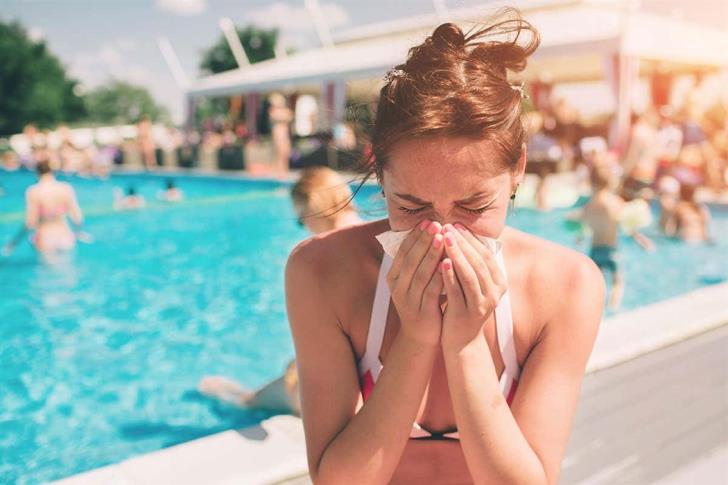The World Health Organization (WHO) makes recommendations to the public and governments for the periphery of Europe, noting that there is no evidence that exposure to the sun or to temperatures above 25 ° C prevents or cures COVID-19.
"In much of the European region of the World Health Organization, we need to prepare for a long, hot summer," the agency said in a statement, adding that meteorological services are expected to be warmer and drier this summer. as usual in the area.
"The public, health professionals and public health authorities need to be prepared for heatwaves and to anticipate and address the potential health effects of heat exposure," it said.
According to the WHO Europe this is particularly important this year due to the ongoing pandemic of coronavirus disease COVID-19 which exacerbates problems caused by longer periods of hot weather, and many people, including those vulnerable to infection and heat, may need to be consulted or need to stay indoors as possible curfews are in place.
The frequency, intensity and duration of the fuel increases, with a significant intensifying trend in the region, which is a point of concern for public health. Due to climate change, the possibility of dangerous exposure to extreme heat has worsened in recent decades and will continue to worsen in the region in the future, it said.
According to the announcement, recent studies have estimated that the probability of heatwave has increased in 31 European countries, including the capitals of the EU, London, Moscow, Oslo and Zurich, and found that all metropolitan areas under investigation will be more vulnerable in overheating in the coming decades.
It is a general scientific agreement, it is stated, that climate change will increase the severity of heat-related diseases if we do not apply strong levels of adaptation. This is also important to avoid putting extra weight on health systems at a time when they are already heavily tested for the treatment of patients with COVID-19.
Every year, high temperatures add to the health of many people, especially the elderly, infants, people who work outdoors and those with chronic illnesses. The heat can cause exhaustion and heat stroke, and can aggravate existing conditions such as cardiovascular, respiratory, kidney or mental illness.
"The adverse effects of hot weather can be largely prevented through good public health practices, at the same time as advising the public on COVID-19", It is noted.
The WHO of Europe states that during periods of hot weather it is important to keep the public cool so as to avoid adverse health effects from the heat.
"Stay away from the heat," he advises. Avoid, he says, going out and doing strenuous activities during the hottest part of the day. "Take advantage of special hours for vulnerable shopping groups whenever they are available.
Stay in the shade, do not leave children or animals in parked vehicles and if necessary or possible spend 2 to 3 hours a day in a cool place respecting the physical distance of at least one meter from others.
Keep your home cool, he notes. "Use the night aura to cool your home. Reduce the heat load in your apartment or house during the day by using blinds or shutters, ”he recommends.
"Keep your body cool and hydrated. Use light and loose clothes and sheets, take cool showers or baths and drink water regularly, avoiding sugary, alcoholic beverages or caffeinated beverages at the same time ", he advises.
"Avoid exposure to the sun or temperatures above 25 ° C, as there is no evidence that it prevents or cures COVID-19 "and increases the risk of sunburn and heat-related illnesses," the body advises.
"You can be infected by COVID-19 "Even in sunny and warm weather, protect yourself and others by washing your hands regularly, coughing on your folded elbow or tissue and avoiding touching your face."
"As long as you take care of yourself, plan to control your family, friends and neighbors who spend a lot of time alone," he said. "People in vulnerable groups may need help on hot days, and if anyone you know is at risk, help them get advice and support while respecting the recommendations for physical removal."
WHO Europe recommends that countries and regions develop and implement heat and health programs. These programs, he added, "aim to prevent, respond to and reduce the health risks associated with heat and should include measures for long-term prevention, medium-term preparation and short-term emergency measures".
Especially this year, it is recommended that "even existing action plans be revised to take account of the measures that have been put in place to reduce and prevent the transmission of COVID-19».
Source: Philenews
